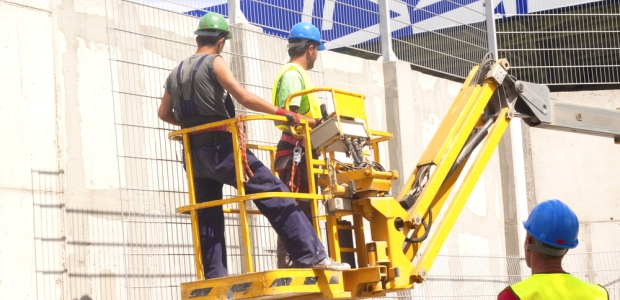A 31-year-old day laborer was killed in the August 2014 collapse at a Birmingham, Ala., work site, OSHA reported.
Made by Advanced Circulatory Systems Inc., a division of ZOLL Medical, the ResQCPR System consists of two devices that are used together to assist in performing CPR on adult patients with out-of-hospital, non-traumatic cardiac arrest.

Secretary Foxx announced NHTSA also will upgrade the Takata investigation to an engineering analysis, a formal step in the agency's defect investigation process.
"There has been massive mobilization on the part of the affected countries and all partners to accelerate the development and availability of proven interventions. If a vaccine is found effective, it will be the first preventive tool against Ebola in history," said WHO Director-General Dr. Margaret Chan.
Rapala USA has recalled about 3,060 StrikeMaster® Lithium Lazer™ Ice Augers because the trigger switch could fail and the unit not turn off, posing an injury hazard.
A biosimilar product is a biological product that is approved based on a relative relation to an already approved biological product.
A prequalification system approved by the Federal Highway Administration aims to improve contractors' performance.
An employee was fired for raising concerns about asbestos removal, according to the department.
A proposed new pilot program will explore new ways to make it easier for states and cities to hire local residents.
The acquisition of the gas and flame detection company from Battery Ventures was completed for $329.5 million in cash.

The construction industry had the highest incidence rate during most of the time periods examined in the study.
H.M. Richards Inc. failed to protect the employee from an electrical hazard, according to OSHA.
The app will provide the public with information regarding drug supply, shortages, and discontinued drug products.

They include NFPA 1984, Standard for Respirators for Wildland Fire Fighting Operations, and NFPA 1405, Guide for Land-Based Fire Departments that Respond to Marine Vessel Fires.
The agency announced it has issued a $28,125 fine to Portland Specialty Baking LLC for a grouped willful lockout/tagout violation.
The Illinois-based contractor was banned by a federal court for "refusing to abide by OSHA standards."
The company has had 41 safety citations since 2011, according to the agency.